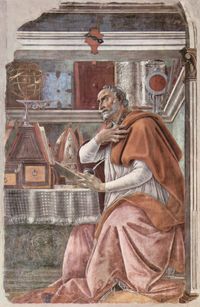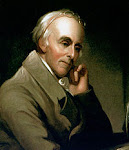Religion, always a principle of energy, in this new people is no way worn out or impaired; and their mode of professing it is also one main cause of this free spirit. The people are Protestants; and of that kind which is the most adverse to all implicit submission of mind and opinion. This is a persuasion not only favourable to liberty, but built upon it. I do not think, Sir, that the reason of this averseness in the dissenting churches, from all that looks like absolute government, is so much to be sought in their religious tenets, as in their history. Every one knows that the Roman Catholic religion is at least coeval with most of the governments where it prevails; that it has generally gone hand in hand with them, and received great favour and every kind of support from authority. The Church of England too was formed from her cradle under the nursing care of regular government. But the dissenting interests have sprung up in direct opposition to all the ordinary powers of the world; and could justify that opposition only on a strong claim to natural liberty. Their very existence depended on the powerful and unremitted assertion of that claim. All Protestantism, even the most cold and passive, is a sort of dissent. But the religion most prevalent in our northern colonies is a refinement on the principle of resistance; it is the dissidence of dissent, and the Protestantism of the Protestant religion. This religion, under a variety of denominations agreeing in nothing but in the communion of the spirit of liberty, is predominant in most of the northern provinces; where the Church of England, notwithstanding its legal rights, is in reality no more than a sort of private sect, not composing most probably the tenth of the people. The colonists left England when this spirit was high, and in the emigrants was the highest of all; and even that stream of foreigners, which has been constantly flowing into these colonies, has, for the greatest part, been composed of dissenters from the establishments of their several countries, and have brought with them a temper and character far from alien to that of the people with whom they mixed.- Speech on Conciliation with the Colonies, March 22, 1775.
Sunday, June 5, 2011
Quote #140: dissenting religion and the push for American Independence
From the great English statesman Edmund Burke (1729-1797) comes this analysis of the role that dissenting religion played in the American commitment to liberty at the time leading up to our Revolution:
Labels:
america,
Burke,
freedom,
god in america,
god in society,
Guarding Liberty,
religion,
republic
Thursday, June 2, 2011
Quote #139: Enduring freedom is embodied freedom
"The only freedom which can last is a freedom embodied somewhere, rooted in a history, located in space, sanctioned by a genealogy, and blessed by a religious establishment. The only equality which abstract rights, insisted upon outside the context of politics, are likely to provide is the equality of universal slavery. It is a lesson which Western man is only now beginning to learn."
- M.E. Bradford, A Better Guide Than Reason: Federalists & Anti-Federalists (Transaction Publishers: 1994), pg. xviii.
[Cross-posted at my own blog, Ordered Liberty.]
- M.E. Bradford, A Better Guide Than Reason: Federalists & Anti-Federalists (Transaction Publishers: 1994), pg. xviii.
[Cross-posted at my own blog, Ordered Liberty.]
Labels:
conservatism,
freedom,
Guarding Liberty,
Individual Rights
Subscribe to:
Posts (Atom)

St. Augustine (by Sandro Botticelli)

St. Ignatius Loyola (by Francisco Zurbaran)

Benjamin Rush (by Charles Willson Peale)

Patrick Henry at the Virginia House of Burgesses (by Henry Rothermel)

Edmund Burke (by Sir Joshua Reynolds)

Samuel Adams (by John Singleton Copley)

Alexander Hamilton (by John Trumbull)

































